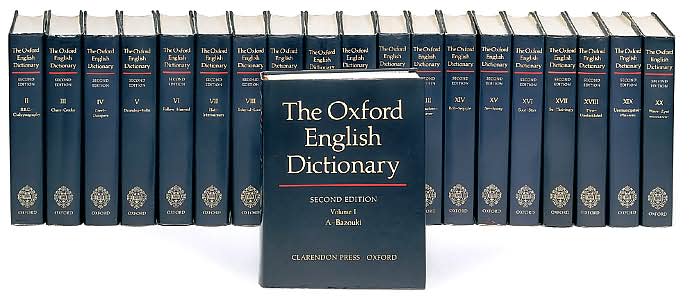Friday, October 28, 2016
OED ≠ Optimal Explosive Device
In a conversation I heard this week between Krista Tippett, Eboo Patel (founder of the Interfaith Youth Core) and former U.S. Poet Laureate Natasha Trethewey, Patel spoke eloquently about his upbringing, especially his own experience as a college student. He talked about the passion he developed around racial issues and how avidly he promoted his causes. He confessed to being caught up in binary thinking -- right/wrong -- clear distinctions. He made it clear, however, that he no longer adhered to that way of thinking. He related a much more nuanced way of thinking, using "justice" as an example:
Justice is another term that we assume everybody has the same definition of. My new line to 20-year-olds who look very chastised when I say this on campuses is, “If everybody in the room that you’re in has the same definition of ‘justice’ that you do — I don’t care how many colors, or genders, or sexual preferences, or religions are in that room — it’s not a diverse room.” Part of the definition of “diversity” is the recognition there are diverse understandings of justice.
Tippet then shifted the focus to Tretheway, asking her opinion. And she replied: "I was thinking that what Eboo was saying was exactly right. But for a moment, I longed to be standing in front of my OED with my little magnifying glass so that I could look up that word “justice” again." Whether Tretheway meant it this way, what I immediately thought (after running "OED" past the filter of "IED" --"Improvised Explosive Device") was that recourse to the OED could be seen as a turn to a single authoritative definition of "justice". And, following on that would be the assumption that the correct definition of "justice" could then be used as a bludgeon to use with those who disagreed.
I'm not very much interested in the conversation about whether or not there is an objective "truth" (or an objective "justice"); competing truth claims rarely get us anywhere. And, so, the appeal to an authority like the Oxford English Dictionary can only be an appeal to ONE definition (or, more appropriately in the case of the OED, an appeal to the history leading to the current definition). We need MORE than that kind of an approach in this fractious time. The conversation between Tippett, Patel and Tretheway, it should be noted, did not trend towards a "single definition" -- exactly the opposite in fact. They all pushed for MORE dialog, greater understanding of the diverse opinions.
Later in the same day that I heard that conversation, I led a workshop at DU on Appreciative Inquiry. As I went over the "Eight Assumptions of Appreciative Inquiry", I could not help but recognize the overlap. Assumption #3 is "Reality is created in the moment, and there are multiple realities"; assumption #7 is "It is important to value differences."
"Multiple."
"Differences."
Appreciative Inquiry is a system, or methodology, for managing change. We know change is difficult (we're certainly experiencing both the change, and the difficulty!). Change, however, is inevitable. And we need to muster all of our resources to negotiate. To move to something new requires all of our voices. But it also requires all of our ears; we need to listen to other experiences, other beliefs, other hopes. We can't afford to let ONE definition blow another one out of the water. We must be better, we must be wiser than that.
Blessings,
Gary
Subscribe to:
Post Comments (Atom)


Listening: I recently heard this, "People listen to reply not to learn." Or something similar. True. We listen to respond with Our Story not taking in The Story just told! Aye he.
ReplyDeleteUnfortunately, you're too right too often on this point!
ReplyDelete